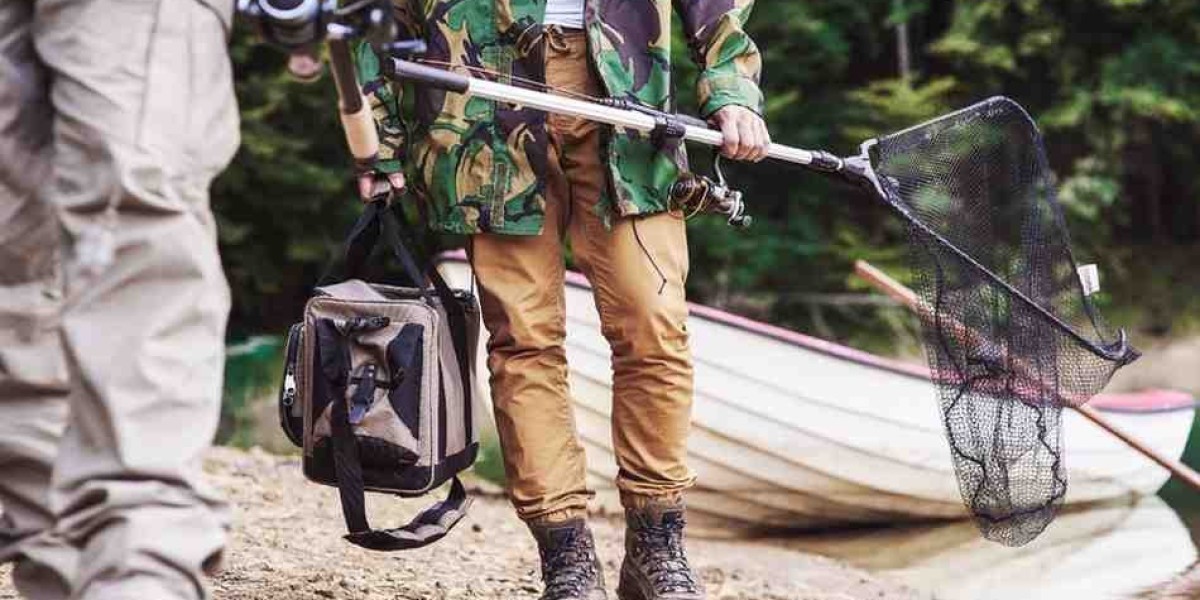Hunting is more than just a solitary activity—it can be an incredibly rewarding social experience when done with the right group. Whether you're a seasoned hunter looking to expand your network or a beginner seeking mentorship, joining a hunting group is an excellent way to improve your skills, share knowledge, and enjoy camaraderie with like-minded individuals.
But with so many hunting groups available, how do you find the one that’s perfect for your skills and interests? This guide will help you navigate the process of choosing the ideal group to enhance your hunting experience.
1. Why Join a Hunting Group?
Before diving into how to find the perfect hunting group, let’s explore why joining one can be beneficial:
Skill Development: Learn from experienced hunters who can teach you new techniques and strategies.
Shared Resources: Many hunting groups pool resources, such as equipment, vehicles, or hunting leases.
Safety: Hunting with a group increases safety, as there’s always someone nearby in case of an emergency.
Networking: Meet people who share your passion and build lasting friendships.
Fun and Community: Enjoy the camaraderie of hunting trips, shared meals, and stories around the campfire.
2. Assess Your Skills and Interests
To find the right hunting group, it’s important to first understand your own skills and interests.
Experience Level: Are you a beginner, intermediate, or advanced hunter? Some groups focus on teaching newcomers, while others cater to seasoned hunters.
Hunting Style: Do you prefer rifle hunting, bow hunting, or both? Look for groups that align with your style.
Target Species: Whether it’s deer, waterfowl, upland birds, or big game, choose a group that hunts the species you’re most interested in.
Hunting Ethics: Ensure the group’s values align with your ethical stance on hunting and conservation.
3. Where to Look for Hunting Groups
Finding the right hunting group may take a bit of research, but there are several resources available to help:
Online Platforms
Social Media: Facebook groups, Reddit communities, and local forums often host hunting group discussions. Search for groups in your area using keywords like “hunting groups near me” or “local hunting clubs.”
Hunting Websites: Websites like Hunting Locator, GoHunt, or state wildlife agency sites often list hunting clubs and groups.
Local Organizations
Hunting Clubs: Many regions have dedicated hunting clubs that organize events and trips for members.
Wildlife Agencies: State or regional wildlife organizations often have information on licensed hunting groups and clubs.
Sportsman’s Stores: Local outdoor stores can be great places to inquire about hunting groups in your area.
Word of Mouth
Ask friends, family, or coworkers if they’re part of a hunting group or know of any reputable ones. Personal recommendations can lead you to trustworthy and welcoming groups.
4. Evaluate Hunting Groups
Once you’ve found a few potential groups, take the time to evaluate them:
Membership Requirements: Some groups may require fees, specific licenses, or participation in activities. Ensure you meet their criteria.
Group Size: Consider whether you’d prefer a smaller, tight-knit group or a larger one with more diverse members.
Activities Offered: Check what types of hunts, trips, or training sessions the group organizes.
Communication: Active and organized groups often have clear communication channels, such as email lists, social media pages, or apps.
5. Attend a Trial Event
Many hunting groups allow prospective members to attend a trial event or meeting. This is a great opportunity to:
Meet members and assess the group’s dynamic.
Observe their approach to hunting and safety practices.
Decide whether their activities align with your interests and goals.
6. Questions to Ask Before Joining
To ensure the group is the right fit, ask these questions:
What species do you typically hunt?
How often do you organize hunts or meetings?
Are there membership fees or additional costs?
What safety protocols does the group follow?
Are there opportunities for mentorship or skill development?
7. Tips for Beginners Joining Hunting Groups
If you’re new to hunting, here are some tips to help you integrate smoothly into a group:
Be Open to Learning: Show enthusiasm and a willingness to learn from more experienced members.
Invest in Basic Gear: While some groups may share resources, it’s good to have your own essential hunting equipment.
Follow the Rules: Adhere to the group’s guidelines, including safety protocols and ethical hunting practices.
Be Respectful: Treat group members, the environment, and wildlife with respect.
8. Benefits of Starting Your Own Hunting Group
If you’re unable to find a group that matches your preferences, consider starting your own.
Choose Your Focus: Tailor the group to your hunting style and interests.
Invite Like-Minded People: Reach out to friends, family, or local hunters who share your passion.
Organize Events: Plan hunting trips, workshops, or social gatherings to build camaraderie.
9. Maintaining a Positive Group Experience
Once you’ve joined a hunting group, make the most of the experience:
Participate Actively: Attend meetings, events, and hunts regularly.
Share Knowledge: Contribute your expertise and tips to help others in the group.
Build Relationships: Take time to connect with members and foster a sense of community.
Conclusion
Joining the right hunting group can transform your hunting experience, providing opportunities for learning, connection, and adventure. By assessing your skills, researching groups, and evaluating their offerings, you can find a community that aligns with your interests and enhances your passion for hunting.
Whether you’re a beginner seeking mentorship or an experienced hunter looking to expand your network, the perfect hunting group is out there waiting for you. Happy hunting!










